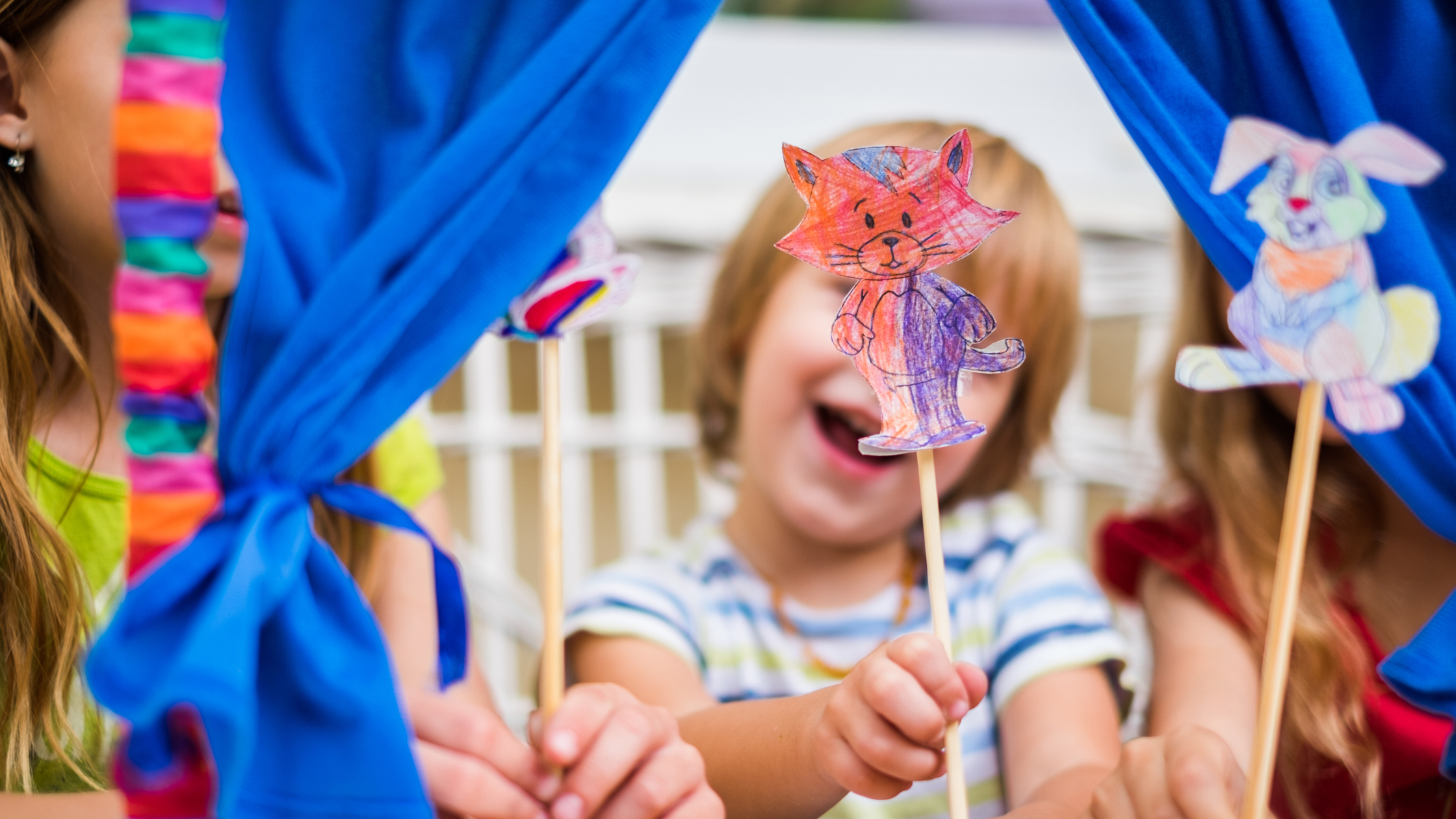Is storytelling an essential life skill? Even though humans have been telling stories since the dawn of time, their importance is often overlooked. From the cave paintings of our ancestors to modern-day movies and TV shows, storytelling is a cherished part of our culture. Why? Because it’s also a crucial life skill that can help us navigate the world around us.
Telling children stories is an excellent way to stimulate their imagination and foster cognitive, social and emotional development. Here are seven of our favourite reasons for developing storytelling as a skill in the children we teach.
- Storytelling helps us connect with others
Stories have the power to connect us with people. We share a part of ourselves with our audience when we tell a story. We can use stories to create empathy, build trust and establish common ground with others. Through storytelling, we can foster deeper and more meaningful relationships with those around us. It also provides an excellent opportunity for parents and caregivers to bond with their children and create lasting memories. Is there anything as lovely as a bedtime story before tucking them in for a night of sweet dreams?
- Storytelling develops imagination
Another purpose of storytelling is to develop the young imaginations of our kids. When children listen to stories, they create mental pictures in their minds, which helps them to develop their imagination and creativity. There is an abundance of positives to helping spark children’s imaginations, including assisting with cognitive, social and emotional Development. But stories don’t happen only through books. We introduce story elements through voice, music and movement in our classes to expand their imaginations even further! For example, to see a child dance and create an emotion in their parent is the sharing of a special story between them.
Dancing as a part of a story allows expression of their inner feelings. Along with movement that can stimulate their imagination to explore characters.
- We can communicate effectively through stories
Storytelling is an excellent way to communicate complex ideas and emotions. When we tell a story, we can break down abstract concepts into concrete examples that are easier for our audience to understand. This is a life skill that, as adults, is particularly important in professional settings, where we may need to convey complex information in our workplace.
For kids, stories expose them to new words and phrases and help develop their sentence structure, grammar, and language patterns. This can lead to a significant increase in their vocabulary and reading comprehension skills. From learning scripts to presenting to their class, it’s the skill of storytelling that builds confidence and connection.
- Storytelling enhances cognitive skills
Do you find you remember or learn things when there is a story or a song to connect with? Or the impact is greater and leaves you thinking about the story for days? This is the power of storytelling that helps to develop a child’s cognitive skills, such as memory, concentration, and critical thinking. Listening to stories requires a child’s full attention, which can also improve their listening skills and that’s a life skill that will take them far.
Childhood is full of challenges and creating stories around obstacles can build the confidence to face them.
- Build confidence with every story you share
On the topic of confidence, do you remember when your child told their first story? A little written story at school that they were nervous to read out? When we tell a story, we put ourselves out there, which can be scary. However, the more we practise storytelling, the more comfortable we become with sharing our thoughts and experiences with others. This is called the confidence-competence loop and can translate to other areas of our lives, such as public speaking or performing and so it helps to start young!
- Storytelling develops empathy and emotional intelligence
Empathy is the ability to understand and share the feelings of others, which is a life skill we want to nurture in our kids. When we tell a story, we often try to convey an emotion or experience to our audience, which truly puts smiles on faces when that connection happens. It’s through exploring a character’s thoughts, feelings and expressions, as we do in our drama classes, that we can expand this part of their development.
Drama is where stories live! Stepping into another’s shoes, diving into another world, opens little eyes to so much wonder!
Listening to stories helps children understand and relate to different characters and their emotions, which can help them develop empathy and emotional intelligence.
- Preserving culture and history with storytelling
Stories are an essential part of our cultural and historical heritage. They help us understand where we came from and how we got to where we are today. Through storytelling, we can pass down traditions, beliefs, and values from generation to generation.
In our Drama Time classes, our stories vary from camp travels, caring for Miss Polly and her dolly and the jobs for when we grow up! Each story plants a seed for role playing, props, facial expressions, movement and re-telling the stories as they explore the possibilities.
This is particularly important in indigenous cultures, where storytelling is an integral part of preserving their history and way of life. Our new music program focuses on indigenous and Australian stories through song for early education that will foster this connection to country and its history.
There’s no doubt that stories from different cultures expose children to diverse perspectives and help them appreciate the differences and similarities in people and cultures around the world. This, in turn, enables them to become holistic and well-rounded adults which we know every parent, caregiver and teacher wants.
Whether we are sharing personal anecdotes or passing down ancient legends, storytelling is a powerful life skill that can enrich our lives and our children’s lives in countless ways. So, the next time you have the opportunity to tell a story or even listen to one, embrace it!
Find our drama, dance and creative programs that develop storytelling at your school. Contact us today to find a program for your child.




